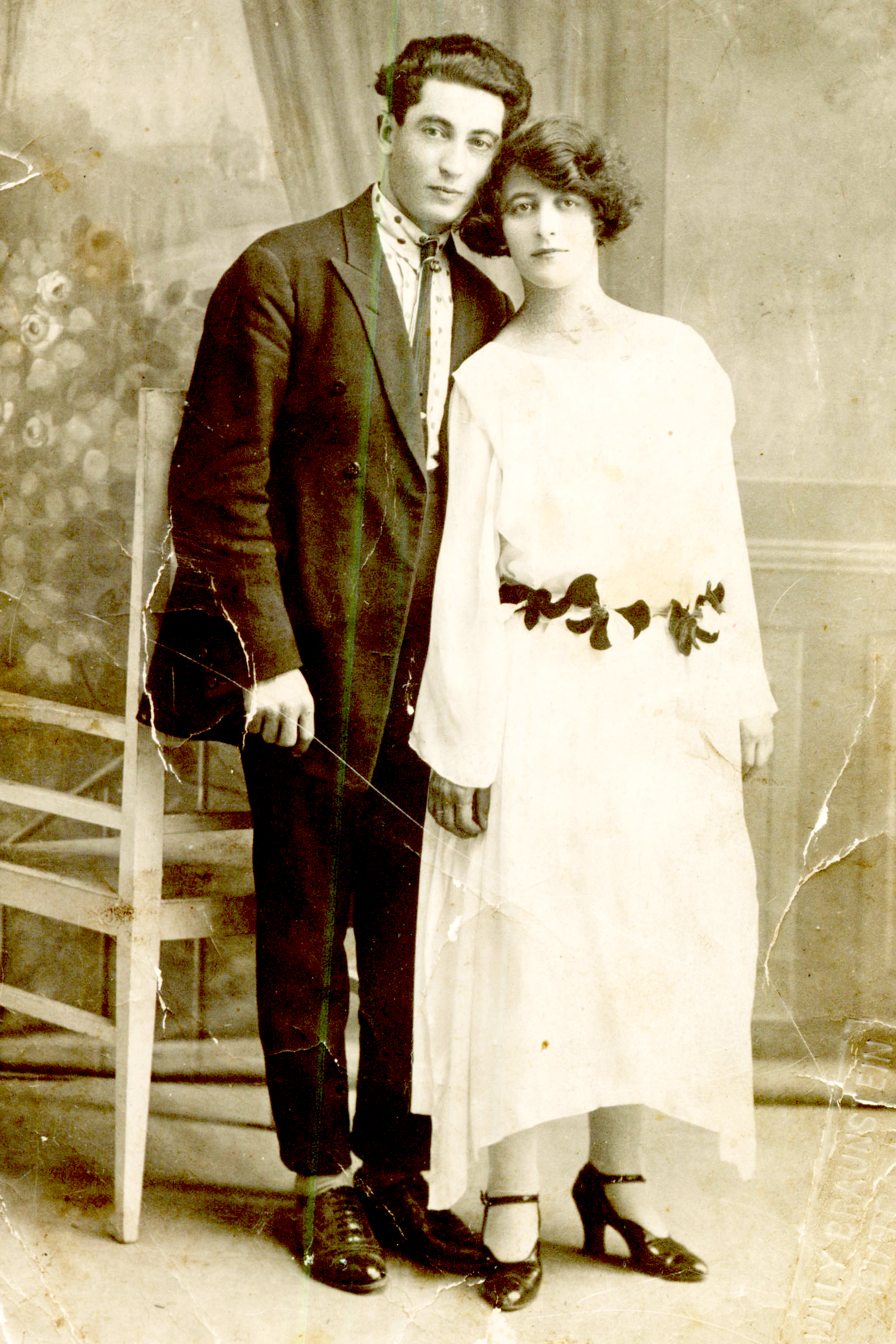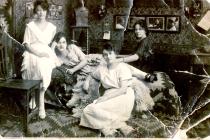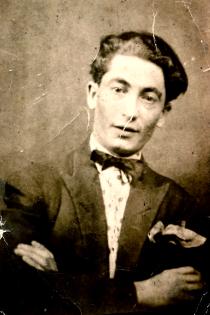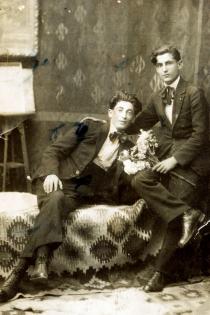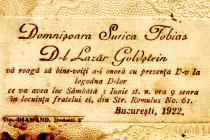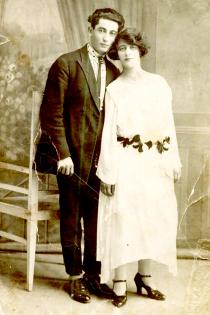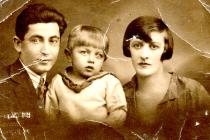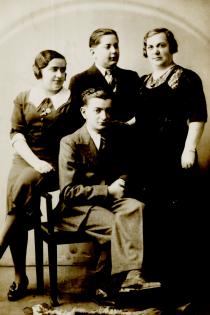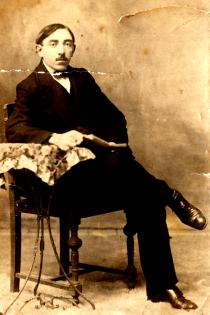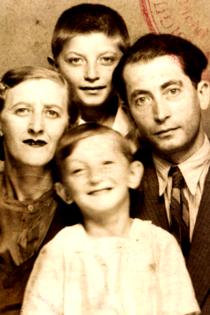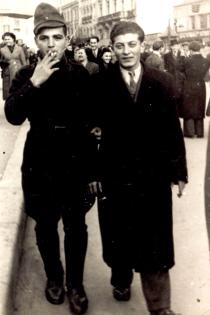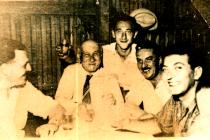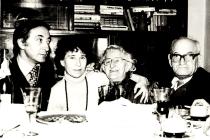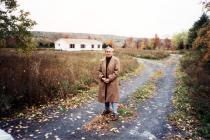This is a photo of my parents, Surica and Lazar Goldstein, after they became engaged, in 1922. The photo was taken at the Milly Braunstein photo cabinet in Piatra Neamt. She was wearing a dress that she had made herself.
My mother, Tobias Surica, was born in 1895, in Piatra Neamt. Unfortunately, her mother died at her birth, so she was raised by an aunt of mine, Tipora, my mother's sister. Her father was a tailor in Piatra Neamt. It was him who taught her this craft, which she exercised with great ability, especially in the times when our family's financial situation was precarious. In 1920, she left for Bucharest on her own, to find a job.
It was a matchmaker who helped her meet my father. In 1922, he was serving in the army, and they got married before he had gone out. First they got engaged, on 3rd June 1922. A few months later, they became husband and wife. They had a Jewish wedding, before the rabbi, under the kippah, but they also went to the civil authorities. The party took place in a house on Romulus St. My mother kept in touch with the matchmaker who had introduced my father to her. I remember they would sometimes meet and talk about family, hardships and children. Although their union was arranged, my parents got along with each other very well all the time. They respected each other and had an enduring marriage.
My father, Lazar Goldstein, was born in Husi in 1900. His only education consisted of four elementary grades, as he had to start earning his living at an early age. He left his home at about 18 and ended up in Buhcarest. I don't know who taught him carpentry, but he was very skilled. He owned a workshop in Bucharest, where he had two apprentices. He was very industrious and persevering and valued a thing that was well crafted. He made the pieces of furniture all the way from the beginning to the end. He often worked for important people, like the writer s, politicians.
The house and the workshop were in fact one and the same thing, and my mother would get upset because the house was full of sawdust. My father would have liked all the family to help him in his work, as the two apprentices weren't always there. I used to help him pretty often. Although I was only 10, I was familiar with timber and I enjoyed the smell of new furniture. My job was to polish the furniture. It was no easy job, for, if my arm got tired, I had to quickly remove the brush imbued with chemical substances from the piece of furniture, lest it should imprint itself and burn the material.
At a certain point, my father lost the workshop, because he didn't manage to pay his taxes. So one beautiful spring day, some people from the police and the city hall came. They were beating this huge drum, reading aloud the decision that empowered them to take my father's workshop away from him. It was a scene worthy of the Middle Ages. After that, my father became a free-lance worker. He would usually go to his customers' places. Our situation went from bad to worse and my mother was forced to start working as a tailor (a trade she had learnt from her father in her childhood).
My mother took care of everything at home: washing, cleaning, looking after the children and my father, as we could never afford a nurse or a maid - there never was any question about that. She would dress according to the fashion of the time and had the advantage of being able to make her own dresses. On holidays, after preparing the house for the celebration of Pesach, Purim or Chanukkah, my mother would go to the Choral Temple, not to the Malbim Synagogue, where my father used to go. She loved to go there because she wanted to see other people and to be seen by other people. The Choral Temple was a place where friendships and relationships would be started more easily? We, the children, would play in the synagogue's courtyard or would send kisses to our acquaintances who were up in the balcony. Every year on Yom Kippur, my mother would say: 'Oh, what an easy fast we had this year'. It was obvious she had a lot of practice in the field of fasting. My brother and I would sometimes eat surreptitiously, but my mother pretended not to spot us. All her life, she was endowed with an extraordinary vitality.
